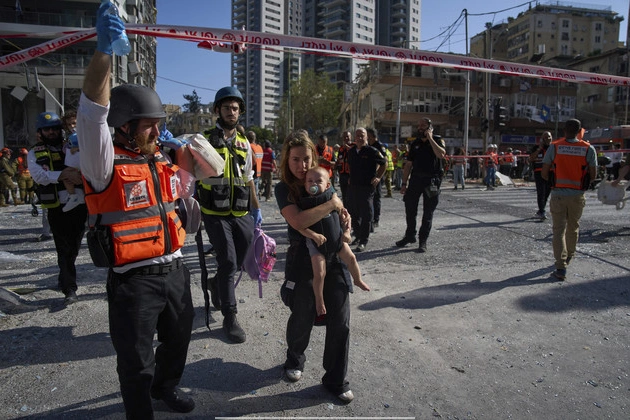
Israel’s defense minister openly threatened Iran’s supreme leader following a recent missile strike that caused significant damage to a hospital in southern Israel, resulting in 240 injuries, including four serious cases. The majority of those affected suffered minor wounds, with over 70 patients from the Soroka Medical Center in Beersheba among them.
Blame on Iran’s Supreme Leader
In the aftermath of the missile attacks, Israeli Defense Minister Israel Katz pointed fingers at Iran’s Supreme Leader Ayatollah Ali Khamenei, stating that decisive action is necessary for their military objectives to be fulfilled, implying the removal of Khamenei.
U.S. officials revealed that President Donald Trump vetoed an Israeli plan to eliminate Khamenei, clarifying later that there were no immediate plans for his assassination.
Counterattacks on Iran’s Nuclear Sites
On Israel’s end, strikes were carried out on Iran’s Arak heavy water reactor as part of their ongoing efforts to disrupt Iran’s nuclear activities. The conflict initiated with a series of Israeli airstrikes targeting military installations, senior officers, and nuclear experts.
According to a Washington-based Iranian human rights organization, the casualties in Iran have surpassed 600 individuals, including civilians, with many more wounded. In retaliation, Iran has launched numerous missiles and drones, resulting in casualties in Israel as well.
Medical Emergency Response
Witnesses reported that the missile struck shortly after air raid sirens sounded, causing a loud explosion. Fortunately, the damage to the hospital was contained to an evacuated surgery building. The medical center restricted access to all but critical cases following the incident.
Despite the chaos, there were no severe injuries reported from the hospital strike. Prime Minister Benjamin Netanyahu condemned the assault, promising retaliation against Tehran.
Continued Strife and Diplomatic Hints
The conflict escalated with further strikes on Iran’s nuclear facilities, including the Arak reactor core, to prevent plutonium production. Israel also targeted a site near Natanz linked to Iran’s nuclear ambitions.
Iran’s Foreign Minister Abbas Araghchi planned diplomatic discussions with European counterparts in Geneva, suggesting a potential diplomatic resolution. However, President Trump’s stance indicates a desire for a more significant action than a ceasefire.
Concerns and Consequences
The Arak heavy water reactor, a critical element in Iran’s nuclear program, was the recent focal point of the conflict. The reactor’s capabilities in producing plutonium, alongside enriched uranium, raise concerns about Iran’s nuclear ambitions.
While Iran insists on the peaceful nature of its nuclear program, its actions have raised suspicions. Israel’s preventive strikes aim to curb any potential threats posed by Iran’s nuclear advancements.
Despite international concerns and calls for restraint, the conflict shows no signs of abating, with both sides prepared for further escalations.











